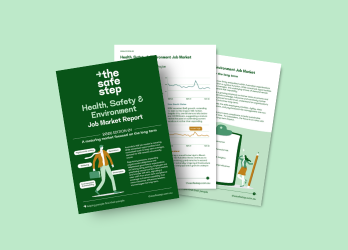Fail to Prepare; Prepare to Fail
Page Published Date:
January 17, 2022
Your Resume may have got you ‘through the door’, but it isn’t going to get you the job. What you have to ask yourself, is what is going to make you stand out compared to the competition. In many cases, it is going to be the degree of preparation you have undertaken.
So, what sort of preparation should you undertake? I would focus my research around 3 areas; the industry, the company and the role. Here are a few tips (not an exhaustive list).
Get to know the sector
Gaining an appreciation of the main players in that market and any economic or regulatory issues that are impacting the industry are useful to know. If it is a sector that is new to you, being able to reassure an interviewer that you have at least a macro view opportunities and challenges will help to overcome potential concerns.
Whilst you may view health and safety as a function that is transferable across industries, it is still reassuring for an interviewer to know that you have an appreciation of the issues facing their sector.
Learn about your potential new employer
When researching a company, there is usually a huge of amount of information in the public domain to allow you to get a good understanding of the organisation, their products or services, their people, their values and their strategy. Immersing yourself in this information is important, so that when asked the question, “so what do you know about us?”, you don’t destroy your chances.
Fundamentally, not having an appreciation of what a company does and how they do it, will demonstrate to an interviewer a serious lack of preparation and commitment on your part.
Understand the role
When considering the role, you might have a lot of information to help you prepare, or nothing more than the text of an advertisement. If the latter is the case, try and distil from the advert the key capabilities and behaviours that the company is seeking and then think about examples from your career where you have demonstrated these qualities. Prepare a number of examples that you can succinctly speak about at interview.
If you have been fortunate enough to have a role description, maybe a verbal brief, and other supporting information, this simple rule still applies. Identify the key capabilities and behaviours and prepare accordingly. And remember, be succinct, don’t waffle and back up any examples with quantifiable outcomes wherever possible.
Preparation makes perfect
Much of what I have outlined above, would strike most people as interview preparation 101. However, it's very common for the basics to get missed. A common compliant from hiring managers is: “they didn’t really know very much about us/the industry/the role”, or “their examples were really weak and vague”,
One of the key benefits of preparation, is that you will enter the interview calmly and with confidence. It is always better to prepare – it reduces the risk of failure and disappointment.
Date published : 19/10/2016 Author : John Baker, Managing Director




